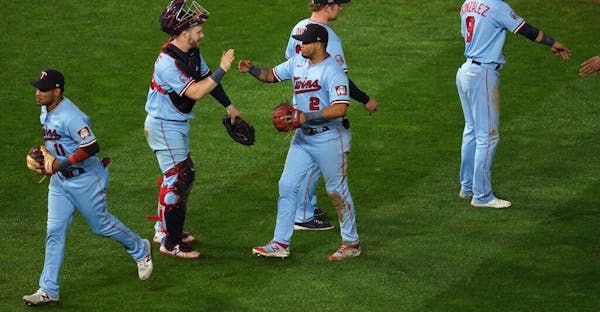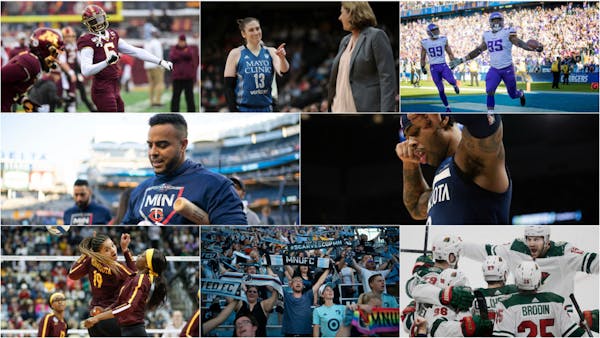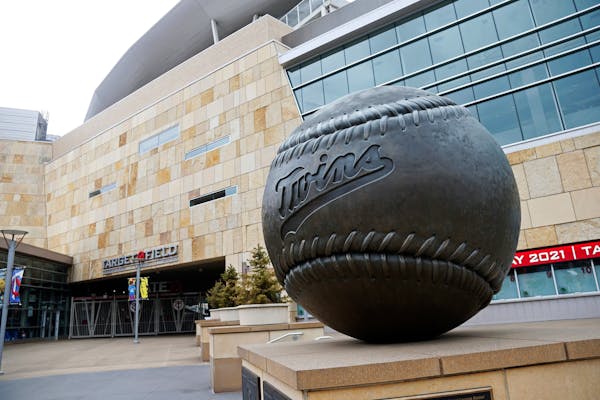Negotiations between Major League Baseball and its players began a month ago amid hopes that the game could save a barren sports summer. They ended Monday night with both sides hoping there is still time to save baseball.
Unable to agree with the players association on changes to the deal they struck in March, the 30 MLB teams "unanimously voted to proceed with the 2020 season" — under its terms anyway — the league said in a statement.
Once MLB Commissioner Rob Manfred formally implements a schedule, training camps could resume next week, and the 60th Opening Day in Twins history, according to several national reports, is likely to take place on or about July 24.
The season will last only 60 games and no one likely will be allowed in the stands to see it, at Target Field or elsewhere. But after reports circulated that some owners, fearful of racking up financial losses if no tickets are sold, preferred to cancel the season completely, even the shortest baseball season in 142 years — barely more than one third of a normal 162-game schedule — was greeted as welcome news by sports-starved fans.
Several obstacles that could derail Manfred's plans remain, however. Chief among them, of course, is the coronavirus pandemic that shut down the game on March 12 and remains a threat in most of the country. MLB and the MLB Players Association must reach agreement on health and safety policies before camps can reopen; more than 40 major league players and staff members tested positive for the virus at team training sites in Florida last week.
MLB's statement announcing its plans asked the players association to inform the league by Tuesday afternoon whether it will sign off on the virus policies it proposed last month, and also whether players can report to camp by July 1.
The players' association also released a statement saying "we anticipate finalizing a comprehensive set of health and safety protocols with Major League Baseball in the coming days." It's possible that some players may opt not to play the shortened season out of fear of contracting or spreading the virus.
Baseball desperately needs the focus to return to balls and strikes, home runs and double plays, after a month spent bickering over the terms of its return. However, Monday's actions leave the sport in line for a protracted labor battle, with the current collective bargaining agreement expiring in December 2021.
The sport's leaders had expressed hope when the game shut down that baseball would be part of the United States' recovery from the pandemic. "When it's safe to play, we'll be back," Manfred said shortly after closing training camps. "Our fans will be back, our players will be back, and we will be part of the healing in this country from the pandemic."
But Manfred's plans for a triumphant July 4 reopening were scuttled when owners insisted that players accept salary cuts, some as large as 70%, to the prorated payments they agreed to in March.
Players insisted they were due 1/162nd of their salary for every game played, as the March agreement said, even though fans would not be in attendance, which significantly curtails teams' revenue.
As the weeks went by, owners made additional proposals but players never budged off their that's-already-settled position, and owners finally agreed to that point last week. But the opportunity to be part of a rebirth turned into a self-destructive crisis and a public relations disaster. Both sides are expected to file grievances accusing the other of negotiating in bad faith.
"It's absolute death for this industry to keep acting as it has been. Both side[s]," Reds pitcher Trevor Bauer wrote on Twitter Monday, shortly after the MLBPA's executive board voted 33-5 to reject the league's final proposal, which included 60 games and full prorated salaries — terms that will be in MLB's implemented plan anyway. "We're driving the bus straight off a cliff. How is this good for anyone involved? COVID-19 already presented a lose lose lose situation, and we've somehow found a way to make it worse. Incredible."
Manfred's move to impose a schedule of his own means the sport has a chance to salvage at least some goodwill, but several possible temporary enhancements — playoffs expanded to 16 teams, larger shares of postseason revenue, the removal of "qualifying offer" rules for free agency this winter — will not be implemented now.
The players had also sought a longer season, countering the owners' plan with a 70-game season that was rejected last week. After a three-week training camp, there will not be enough time to play more than 60 games and still conclude the 2020 season by Sept. 27, a date that team owners said they could not go past due to TV obligations and the possibility of a resurgence of coronavirus cases this fall.
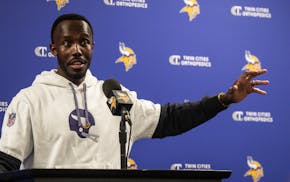
Vikings GM talks to the Star Tribune about the team's 2025 outlook, McCarthy's trajectory
David Festa's return to Twins goes south in a hurry
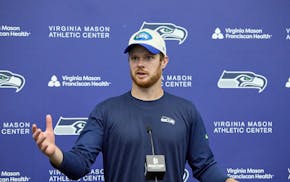
RandBall: After leaving Vikings, Darnold is already under duress in Seattle

Twins ace Pablo López prepares for monthslong absence

